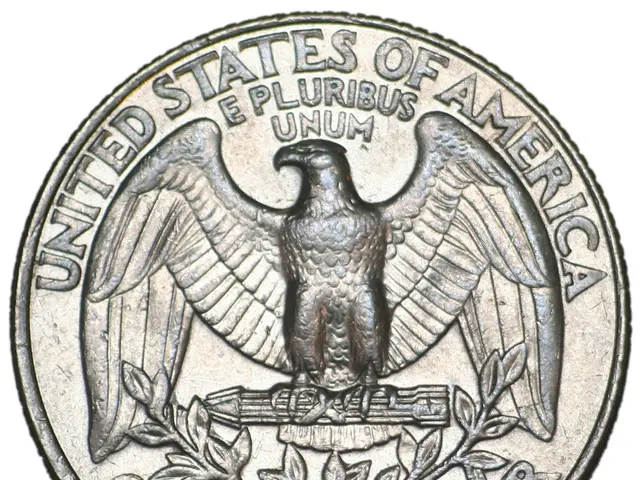U.S. secures a 15% share from Nvidia and AMD sales to China under a unique, unexpected commercial arrangement
In a unique move, tech giants Nvidia and AMD have agreed to share 15% of their revenues from chip sales to China with the U.S. government. This revenue-sharing deal, which allows Nvidia to sell its AI chip called the H20 and AMD to export its MI308 AI chip to Chinese customers, was reached in early August 2025 [1][2].
Background
The deal was negotiated directly between Nvidia CEO Jensen Huang and former President Trump, who initially sought a 20% revenue share but agreed to 15% after negotiation [1]. This agreement comes amid export restrictions and geopolitical tensions, as the U.S. government seeks to maintain control and benefit financially from the export of high-performance AI chips to China.
Legal Implications
This revenue-sharing deal is tied to export controls. Nvidia and AMD require export licenses from the U.S. Department of Commerce to legally ship these advanced AI chips to China. The revenue-sharing is a condition to obtain these licenses [1][2].
This arrangement sets a precedent where the U.S. government directly profits from the overseas sales of strategic technology by U.S. companies, effectively linking trade permissions with revenue-sharing. It strengthens the government's leverage over semiconductor exports critical to AI development, ensuring American interests while allowing controlled trade with China [1][3].
The deal may serve as a model for similar arrangements in other technology sectors, indicating a shift toward more direct economic benefit and oversight by the government on sensitive exports [3]. However, concerns have been raised about the constitutionality of the deal, with Derek Scissors, a senior fellow and China expert at the conservative American Enterprise Institute, stating there's no precedent for export taxes [3].
Controversies and Concerns
The sale of H20 and MI308 chips, used in artificial intelligence development, will resume to China. However, restrictions on sales of advanced chips to China have been central to the AI race between the world's two largest economic powers, but such controls are controversial.
Rep. John Moolenaar, the Republican chair of the House Select Committee on China, and Rep. Raja Krishnamoorthi, the ranking member of the same committee, have expressed concerns over the deal. Moolenaar has called for answers about the legal basis for the agreement, while Krishnamoorthi has demanded full transparency from the administration [3].
Nvidia did not comment on the specific details of the agreement or its quid pro quo nature. The renewed sale of Nvidia's chips in China was linked to a trade agreement made between the two countries on rare earth magnets, according to Commerce Secretary Howard Lutnick [3].
In summary, the revenue-sharing agreement between Nvidia and AMD reflects the complex intersection of trade, national security, and technology policy. It represents a novel regulatory and economic strategy tied to export controls on strategically important technology [1][2][3].
- The revenue-sharing deal between Nvidia and AMD, with a focus on AI semiconductors, directly benefits the U.S. government, as they agreed to share 15% of their revenues from chip sales to China.
- This unique arrangement, approved in early August 2025, establishes a precedent by linking trade permissions with revenue-sharing of strategic technology, such as AI chips.
- Under this agreement, Nvidia can sell its AI chip, the H20, and AMD can export their MI308 AI chip to Chinese customers, contributing to a transition towards more direct economic benefits and oversight by the government on sensitive exports.
- The agreement, which sets a new standard in national technology trade, has generated controversies, especially concerning the legality and transparency of the deal within the context of ongoing geopolitical tensions between the U.S. and China.




